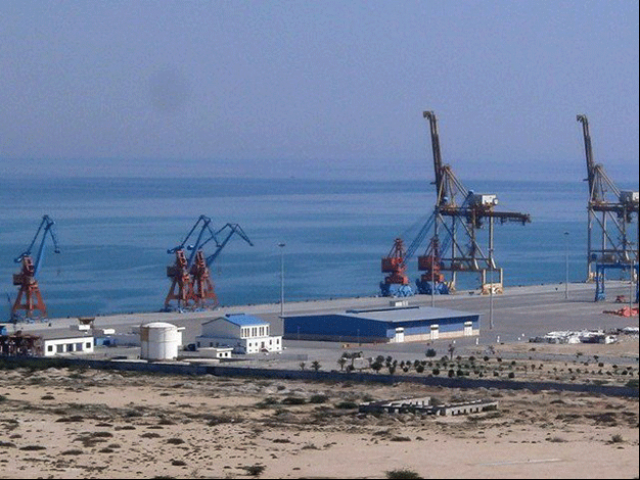How to address fears surrounding economic corridor
Contractual laws must be applied smartly to protect national interest

Contractual laws must be applied smartly to protect national interest. PHOTO: AFP
This second opinion should be based on the realisation that modern statehood does not allow political and economic imperialism unless the state plays as a proxy or client and not independently.
Political undertakings are inevitable before a mega geographical economic format is concluded between two countries of a region and this has already happened in the case of memoranda of understanding (MoUs) signed between Pakistan and China under the CPEC.
Then, when each construction work or business is initiated and continued under the umbrella of political undertaking, the laws of the land apply to each step up the ladder.
By such reassurances I am not suggesting that there are no implied dangers of faulty political undertaking in proceeding for the CPEC. Or that there are no chances of misapplying or deviating from the law in case the geo-economic practice or the subsequent business enterprises go astray and pose a danger to the politico-economic integrity of Pakistan.
Read: ‘CPEC to bring prosperity’
My only plea is that if the political undertaking and contractual laws are applied smartly, no business company or state-owned entity would be allowed to operate in terms that are hostile to the politico-economic integrity of the country. And so no property, assets and financial interest of Pakistan would be compromised.
The actual fear that Pakistan might invite some kind of so-called ‘Yellow Imperialism’ via CPEC stems from that realisation that the actual political masters and bureaucracy dealing with the financial and economic aspects have in the past caused damage to the country’s integrity by misapplying the laws.
Media debate
If there is a potential danger to the politico-economic integrity of Pakistan from the CPEC, the media should launch a debate on this issue. Such a debate would be in the supreme national interest if it covers the following aspects:
— The institutionalised protection against a damaging design attached to the CPEC;
— Damages that could be incurred in the process of implementing the projects — the energy, infrastructure, labour import and transportation mechanisms;
— The inbuilt geopolitical dangers in the CPEC format;
— Weaknesses in the contractual structure applicable to the business enterprises the CPEC is designed to trigger.
There are four kinds of contracts the Chinese entities would be concluding with Pakistani entities in case the CPEC format results in a mega business configuration from Gwadar to the Sost border. These would be between the two governments, between the China-Pakistan state entities, between the state-private entities and between private entities of the two nations.
And, the nature of businesses would be either in the form of joint ventures or as independent entities. There will be political, administrative decisions and financial initiatives covered by the law of the land. This law is one source of confidence for those who fear the CPEC without keeping the institutionalised protection against politico-economic imperialism in view.
Law of Contract
Such safeguards would be ensuring protection via contract process that would be defining and legally protecting the status of the sides in the CPEC enterprises. The Law of Contract in Pakistan already provides for such protection to the public policy, economic policy, free-market principles and rights of businessmen in running joint ventures and independent entities. It deals with the contractual obligations in a manner that does not leave any doubt regarding the protection of politico-economic interest of Pakistan.
Read: CPEC- a window of opportunity for Pakistan
It defines the legality and protection via penalties on the entities and their owners in case they violate the law. It also has a revocation clause in case an enterprise is designed to harm the interest of a business entity, a joint venture or the public policy.
The writer has worked with major newspapers and specialises in analysis of public finance and geo-economics of terrorism
Published in The Express Tribune, October 5th, 2015.
Like Business on Facebook, follow @TribuneBiz on Twitter to stay informed and join in the conversation.



















COMMENTS
Comments are moderated and generally will be posted if they are on-topic and not abusive.
For more information, please see our Comments FAQ